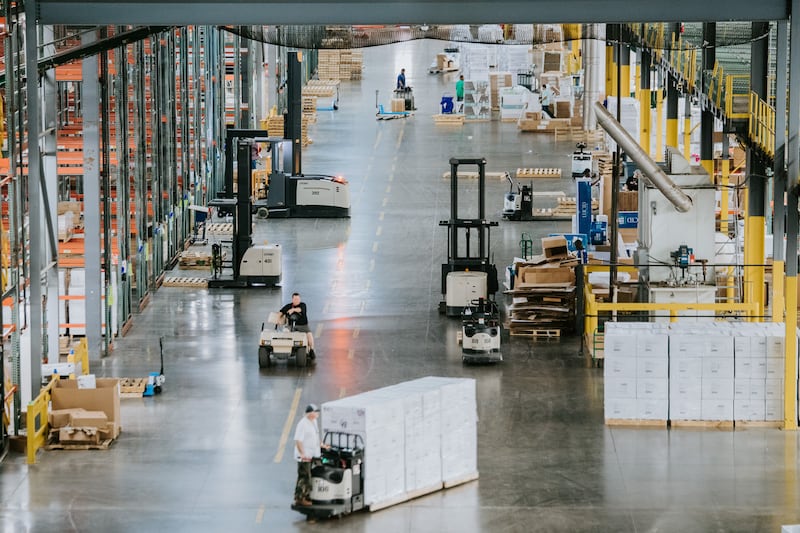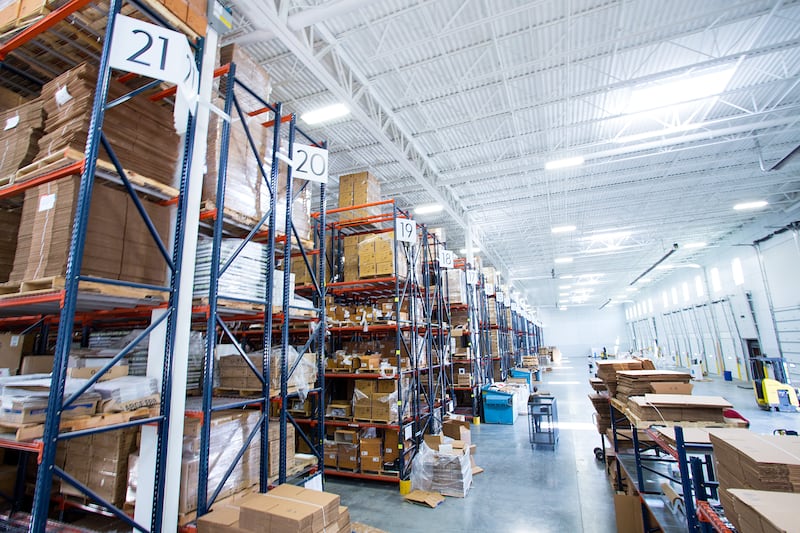SALT LAKE CITY — A Logan-based company has shipped thousands of mattresses and bed frames to cities, including New York, where COVID-19 patients have overwhelmed medical centers and pop-up hospitals.
But the company, Malouf, says an anti-dumping petition several large U.S. bedding industry companies have filed with the International Trade Commission threatens to shut down its business and leave 1,200 workers — about 80% in Utah — without jobs.
“We were slapped in the face with this petition that is working against us as we race to get beds in hospitals,” said Sam Malouf, CEO of Malouf. “We don’t need this distraction. We don’t need to be pulled from the front lines. We need this ITC case stalled now. We need to focus on the crisis at hand.”
A group of U.S. mattress manufacturers and unions asked the federal government to investigate potential illegal subsidies and dumping of mattresses. They filed anti-dumping petitions against mattresses imported from Cambodia, Indonesia, Malaysia, Serbia, Thailand, Turkey and Vietnam on March 31.
The companies, including Leggett & Platt, Brooklyn Bedding and Elite Comfort Solutions, claim a surge of dumped and subsidized imports from those countries the past few years are harming U.S. workers, manufacturers and their suppliers. The companies supply and produce major mattress brands such as Tempur-Pedic, Serta, Simmons and Sealy.
Since 2017, more than 40 American mattress manufacturers have been forced to close their doors due to massive increases in the volume of unfairly traded imports, the companies say.
Malouf has enlisted the help of Sen. Mike Lee, Attorney General Sean Reyes and the Utah Governor’s Office of Economic Development to help put off a trade commission hearing Tuesday on the merits of the petition.
“They’ve made a mistake. They need to admit they were wrong,” Lee said on Fox News last week. “I think it’s a mistake for them to be utilizing the ITC process to shut out competition in a way that’s going to harm the American people during a global pandemic, limiting their access to hospital beds, which are an essential medical device needed for COVID-19 treatment.”
Lee has had conversations with various people within the Trump administration and has made an effort to facilitate open dialogue between the mattress companies on both sides of the issue, Lee spokesman Conn Carroll said Friday.

Malouf has also banded with two dozen other companies, including Salt Lake City-based RC Willey, as the American Mattress Alliance to fight the petition. The group estimates at least 12,000 American jobs could be lost if the petition succeeds.
“We are fully prepared to fight this. We believe that the facts and data are squarely on our side,” said Jeff Steed, Malouf general counsel. “There is a lot at stake here.”
If the trade commission proceeds with the petition, Malouf says it would have to start paying up to a 1,008% tariff on imports starting in June, which would cripple its business and put workers on the street. In addition to Utah, the company has warehouses in Ohio, North Carolina and Texas.

The Institute for Health Metrics and Evaluation at the University of Washington’s School of Medicine this week revised its projection for the demand for hospital beds downward, but still predicts a shortage of more than 86,000 hospital beds and 16,000 ICU beds.
Malouf, which has branded itself as a socially and environmentally responsible company, says the global crisis is the worst possible time for corporate power moves to increase market share. Imported mattresses make up a significant percentage of beds in hospitals. American importers need to continue ordering beds to fight the COVID-19 pandemic, according to Malouf.
The Logan company imports mattresses from several countries. It has sent 40,000 mattresses, adjustable bed bases, bed frames and mattress protectors to New York City, Chicago, Tennessee, Las Vegas and California to meet urgent needs of the pandemic. Some of the items made their way to New York’s Javits Center, a convention venue that has become a makeshift hospital.
The companies filing the petition say there is no shortage of mattresses available to the U.S. health care system or other organizations responding to COVID-19. American mattress manufacturers — using American workers — can manufacture and deliver more than 400,000 mattresses a week for emergency use during the crisis, they said in a press release.
The petition, according to the companies, does not bar imports but requests the government investigate whether unfair trade exists and is injuring U.S. producers and American workers. Importers that rely on dumped or subsidized products might have to pay a duty, the companies said.
Steed said now is not the time for those companies to engage in “corporate warfare” to gain market share. The bedding industry, he said, should be coming together to provide relief during the pandemic.
“We wouldn’t expect to limit anyone in this time of crisis,” he said.
One of the differences between Malouf and the companies filing the petition is that the Logan company has hundreds of thousands of mattresses in warehouses that it could ship in two days in an emergency, Steed said. The other businesses assemble mattresses and would take weeks if not months to fill orders, he said.


